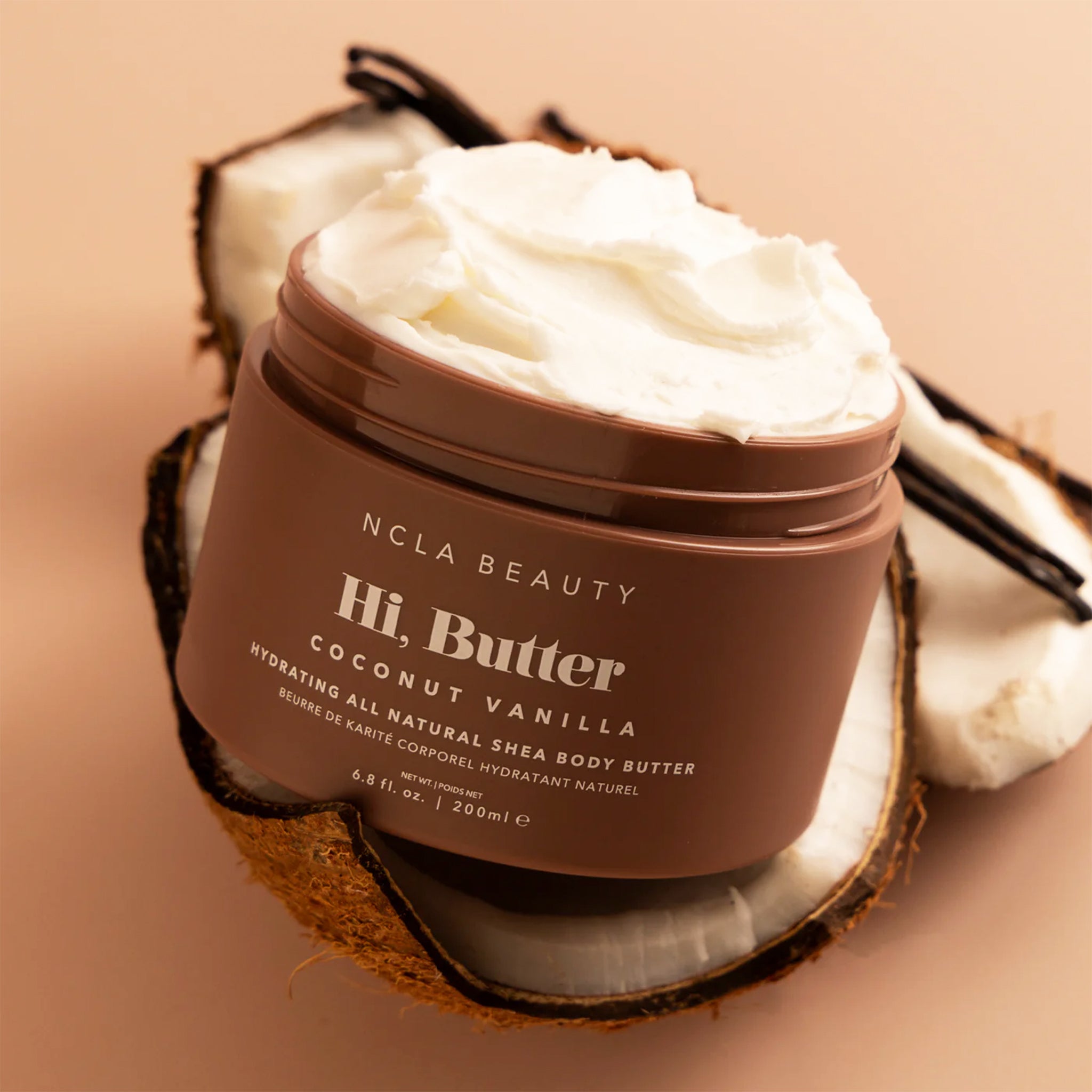
In the quest for the ideal skincare routine, discovering products that nourish and enhance the skin without harmful chemicals is invaluable. One such product gaining increasing attention is body butter. Known for its rich, creamy texture and hydrating properties, body butter provides an excellent solution for those seeking to maintain healthy, radiant skin.
What is Body Butter?
Body butter is a skin moisturiser that is typically denser than lotions, offering higher levels of hydration. It is often composed of natural ingredients such as shea butter, cocoa butter, or mango butter, which are renowned for their moisturising abilities. These thick, nourishing creams are designed to soften and revitalize the skin, making them ideal for dry or rough patches.
Benefits of Using Body Butter
The primary benefit of body butter is its ability to lock in moisture, providing long-lasting hydration that leaves the skin feeling soft and supple. Unlike regular lotions, body butters tend to contain no water, meaning they offer a concentrated source of hydration. This makes them especially beneficial for individuals with extremely dry skin conditions.
Body butter is also known for its occlusive nature, forming a protective barrier over the skin to shield it from environmental stressors such as pollution and harsh weather conditions. This barrier not only keeps moisture in but also protects the skin from external elements that can lead to irritation.
Ingredients to Look For
When choosing a body butter, it is important to pay attention to the ingredients listed. High-quality body butters often contain natural and organic elements like shea butter, which is rich in vitamins A and E, aiding in promoting skin repair and elasticity. Cocoa butter is another excellent option, full of fatty acids that nourish and nurture the skin.
Mango butter is gaining popularity for its soothing properties. It contains essential vitamins such as A, C, and E, which help reduce inflammation and promote healing. Always aim for body butters that are free of parabens, sulphates, and artificial fragrances to ensure your skin receives only the best care.
How to Use Body Butter Effectively
For optimal results, apply body butter immediately after showering when the skin is slightly damp. This allows the product to trap moisture more effectively. Use a generous amount and massage it into the skin in circular motions until fully absorbed. Special attention should be given to particularly dry areas such as elbows, knees, and heels.
While body butter can be used daily, applying it at night can enhance its benefits. During sleep, the skin regenerates and repairing agents within body butter can work more effectively when the body is at rest.
DIY Body Butter: A Home-Made Alternative
For those inclined towards making their own skincare products, crafting homemade body butter can be a satisfying endeavour. By blending your choice of butters (like shea or cocoa) with carrier oils such as coconut or almond oil, you can customise the scent and consistency to suit your preferences.
Essential oils can also be added for fragrance and additional benefits. Popular choices include lavender for its calming effects and tea tree for its antiseptic properties. Always melt the butter gently using a double boiler to preserve the nutritional properties of the ingredients.
Popular Variants of Body Butter
In today’s market, there are numerous variants of body butter to choose from, each with unique benefits. For instance, whipped body butters are lighter in texture and often infused with aromatic essential oils to provide a spa-like experience.
Additionally, vegan body butters are free from animal products, catering to those seeking ethical skincare options. These products typically use plant-based oils and butters, ensuring a cruelty-free alternative that does not compromise on quality or efficacy.
Comparing Body Butter with Other Moisturisers
While lotions and creams are widely used in skincare, body butter stands out due to its rich consistency and intense hydration. Lotions generally have high water content, making them lighter and less effective for severely dry or damaged skin. In contrast, body butters provide deeper moisturisation that can transform the texture and tone of your skin over time.
It is recommended that those with normal to oily skin use body butter sparingly to avoid a greasy feel. Instead, they can alternate with lighter lotions during warmer months.
Conclusion: Choosing the Right Body Butter For You
Selecting the perfect body butter depends on your specific skin needs and preferences. Whether you choose a store-bought option or create your own, ensuring the butter is packed with natural, nourishing ingredients is key to achieving revitalized skin.
For those seeking a body butter that suits their skin type and lifestyle, exploring different formulations and textures is encouraged. Through consistent use and proper application, body butter can become an essential part of your skincare regimen, promoting a soft, healthy, and glowing complexion.